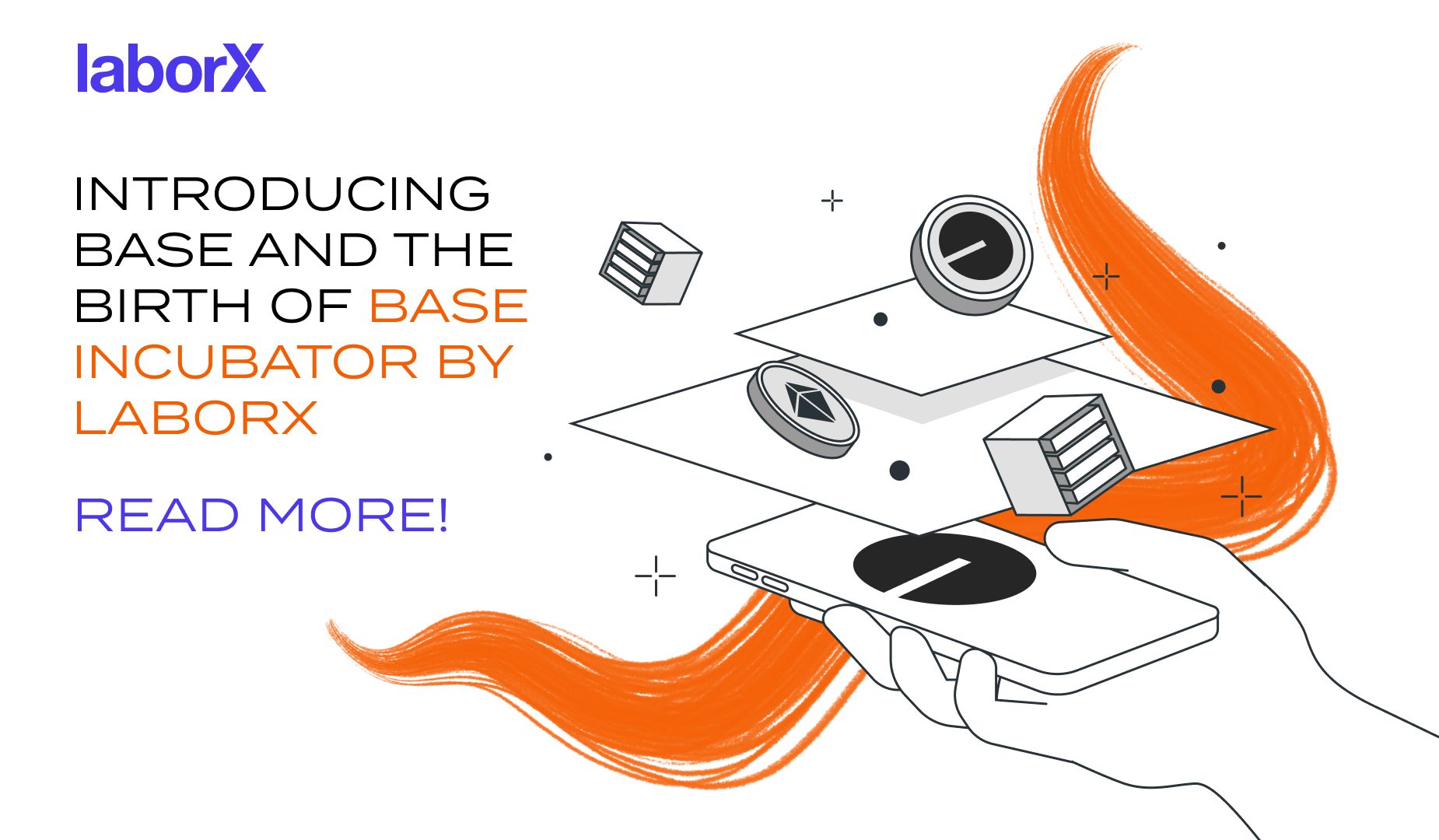How much do entry-level blockchain jobs pay?
While your salary will depend on the particular role, it’s common to receive 10-20% more than you would in a comparable job in another sector.

The growth of the cryptocurrency market and blockchain sector has created many new jobs and career opportunities. While the top positions are extremely competitive and offer attractive salaries, there are many entry-level roles that pay well and allow those new to the space to get a foot in the door, learn as they go, and progress to more advanced jobs in time. (updated 18.10.2022)
Ten years ago the world barely knew about cryptocurrency, or the new shared ledger technology on which it was based. Today, Blockchain is a thriving sub-sector of the tech industry, and almost every major technology company has a blockchain strategy.
As a result of this rapid growth and high demand for employees, there are many new career opportunities in blockchain, but comparatively few people with the skills and experience to fill them. The top roles, particularly in software development, require a level of expertise that can take years to achieve.
For those seeking to change career or get started in blockchain, however, there are plenty of entry-level positions. These can be a great way to learn about this new set of technologies, make contacts in the industry, build a reputation and work towards bigger and better things.
While blockchain jobs can be highly technical, many vacancies won’t need any special skills to get started. Others do require some expertise, but will help you further build your skillset to a high level through significant investment in you and your career. In all cases, willingness to learn is valuable, and a basic grasp of the sector and technology can only help you. Here are ten entry-level jobs – all taken from actual roles recently advertised on recruitment sites – where you can get a foot in the door of this new industry and take your first steps on your next career.
Internships in blockchain can take many forms, but it’s unlikely you’ll be stuck with making the tea and doing the photocopying if you manage to make the grade. You probably won’t need extensive experience in blockchain, though you will need to be bright, motivated, and be willing to work hard. For developer internships, you’ll need to have some track record with coding, though no one’s going to expect you to be familiar with all the quirks of Solidity. You could equally be involved in research or marketing roles.
If you have a relevant background or qualification, then an entry-level role in marketing could be a great fit. You’ll be taking what you already know about marketing (mainly digital marketing), and applying it in a new setting. This is the ideal way to learn more about blockchain on the job, getting to grips with the technology, understanding the benefits it offers users, and how to communicate those on a variety of different channels.
Like an internship, an apprenticeship is a good way to start from scratch, gain some experience, and learn about blockchain and its business use cases. This kind of role is likely to be longer-term than an internship, though, and will come with significant investment into your career – likely with the ultimate aim of you joining the company and putting into practice what you’ve learned. This is the ideal setting to dive deeper into a particular technical aspect of blockchain, such as security.
All companies need administrators and HR staff. While you probably won’t need to know anything about blockchain to secure a job in admin, the nature of many blockchain startups is that there will be lots of opportunities to pick up new skills and figure out new processes that are specific to the industry (like running a crypto payroll or managing basic security procedures). Additionally, it can be all hands on deck: if you can learn new skills and serve the company in other ways, your chances of progressing to another role are good.
Every developer has to start somewhere. If you’re already familiar with a relevant and widely-used programming language, this could be a good option for you. Python is a great choice as it’s widely used in blockchain development, and if you’re looking at website development then the standard HTML and CSS will be valuable. JavaScript is also useful, not just for web dev but also because Solidity, Ethereum’s smart contract language, is quite similar to it.
Another entry-level role which needs little in the way of specialist skills, this post is vital for engaging the communities that build up around crypto projects, answering questions, and keeping discussions civil and on track. It may sound easy, but it can be a tough job and one that’s definitely not for everyone.
Just as investment banks and funds hire and train new traders straight out of university or college in the traditional financial world, so new crypto-focused funds are looking for people who have the discipline to analyse the markets and pinpoint for low-risk, high-return opportunities.
Content creators help communicate the complex landscape of blockchain and DeFi to mainstream audiences. While the top jobs demand a high level of experience in writing, editing, content planning, and SEO, as well as extensive knowledge of the technology, there are also lots of entry-level roles for freelancers and full-time writers.
There’s a huge demand to fill vacancies in this new sector, and if you’re someone who knows how to find the right person for the job, you’ll be in a position to make a sideways move and carve out a niche as a specialist recruiter.
This is another role where you’ll learn a lot about blockchain on the job, and move quickly up the ladder as you understand more and more about the queries people submit.
The top jobs in the blockchain sector can easily earn in excess of $200,000 per year, plus equity or bonuses. Of course, entry-level jobs won’t pay as much as this, but you’ll be pleasantly surprised at how much more you’ll be taking home than in a comparable job in another sector.
Jobs in blockchain typically pay 10-20% above what you’d otherwise receive. If you’re looking to pick up an internship, you’re much more likely to be paid – because these positions are competitive and often exacting, you probably won’t be expected to work for free, as you might be in other industries.
When this article was first published, the process of finding crypto jobs and getting paid was generally not so different to that for any other job. Over the past 16 months, though, things have started to change. Now, your ‘employer’ might not be a company, or an individual, or even an informal group, but a DAO.
DAOs, or decentralised autonomous organisations, are entities that manage smart contract protocols and allocate funds as a community, via blockchain-based votes. The idea is that there is no single point of failure for the organisation: not in the infrastructure on which the platform runs (the blockchain), and not in the management of the protocol. There is no CEO, no executive board, and perhaps not even a core team of developers.
Gaining a job with a DAO can be very different to finding work with an individual or a conventional organisation. In some cases the process can be similar; there may be units within the DAO that have control over their own budgets, hiring, and so on. If the DAO’s approach is more decentralised, though, then you might find yourself applying ‘directly’ to the entire community, with a proposal on a forum for what work you are offering to do, and for what pay. The community will vote on whether to accept your proposal, and later, when you have completed a tranche of work, whether to pay you.
Over the past 18 months, more and more DeFi and crypto projects have moved to a DAO model (one of the first and most notable being MakerDAO), and so there are more opportunities, at all levels. However, it’s certainly not for everyone. This is democracy and the free market at their purest and most brutal. Working for a DAO can be very rewarding, financially and in other ways, but it can also be punishing – the community can vote to end their working relationship with you at a moment’s notice, and because they’re made up of individuals with potentially very different priorities, it can be hard to gain consensus for a task.
While your salary will depend on the particular role, it’s common to receive 10-20% more than you would in a comparable job in another sector.
You’ll find lots of entry-level opportunities on LinkedIn and other conventional recruitment sites, as well as specialist blockchain and crypto jobs portals.
Just like any other industry, blockchain has lots of internships that offer a great introduction to the technology and use cases. What’s more, they’re more likely to be paid internships than if you’re looking for a job in another sector.

Hotcoin’s HR shares her journey from traditional industries to the world of Web3 and crypto, highlighting key insights on thriving in this space.
Read
Discover how Web3 is reshaping HR practices with insights from a leading expert in the field.
Read
Discover Base's innovative L2 solution addressing scalability, security, and user experience challenges in crypto. Learn about Base Incubator by LaborX, fostering growth and innovation within the Base ecosystem.
Read